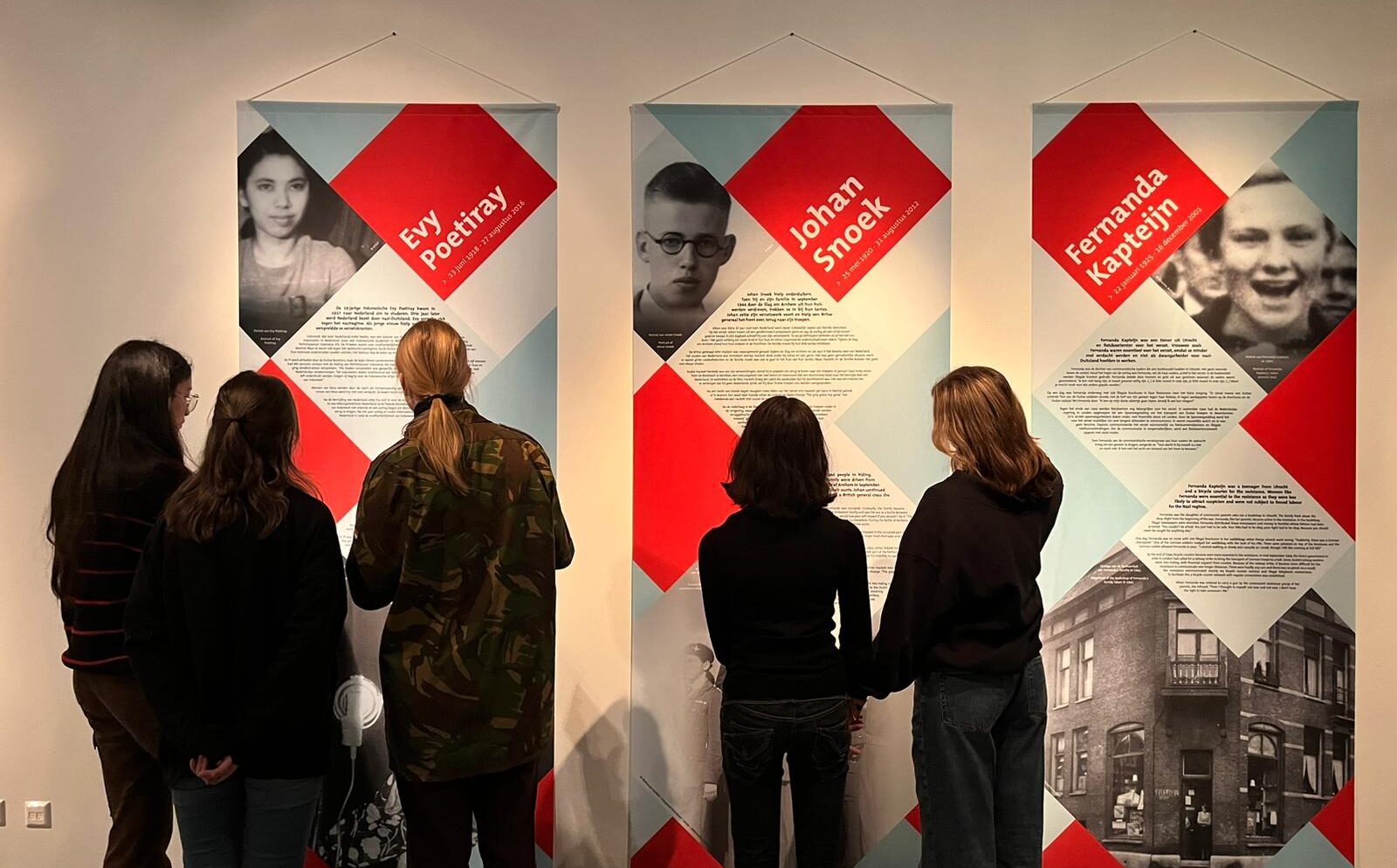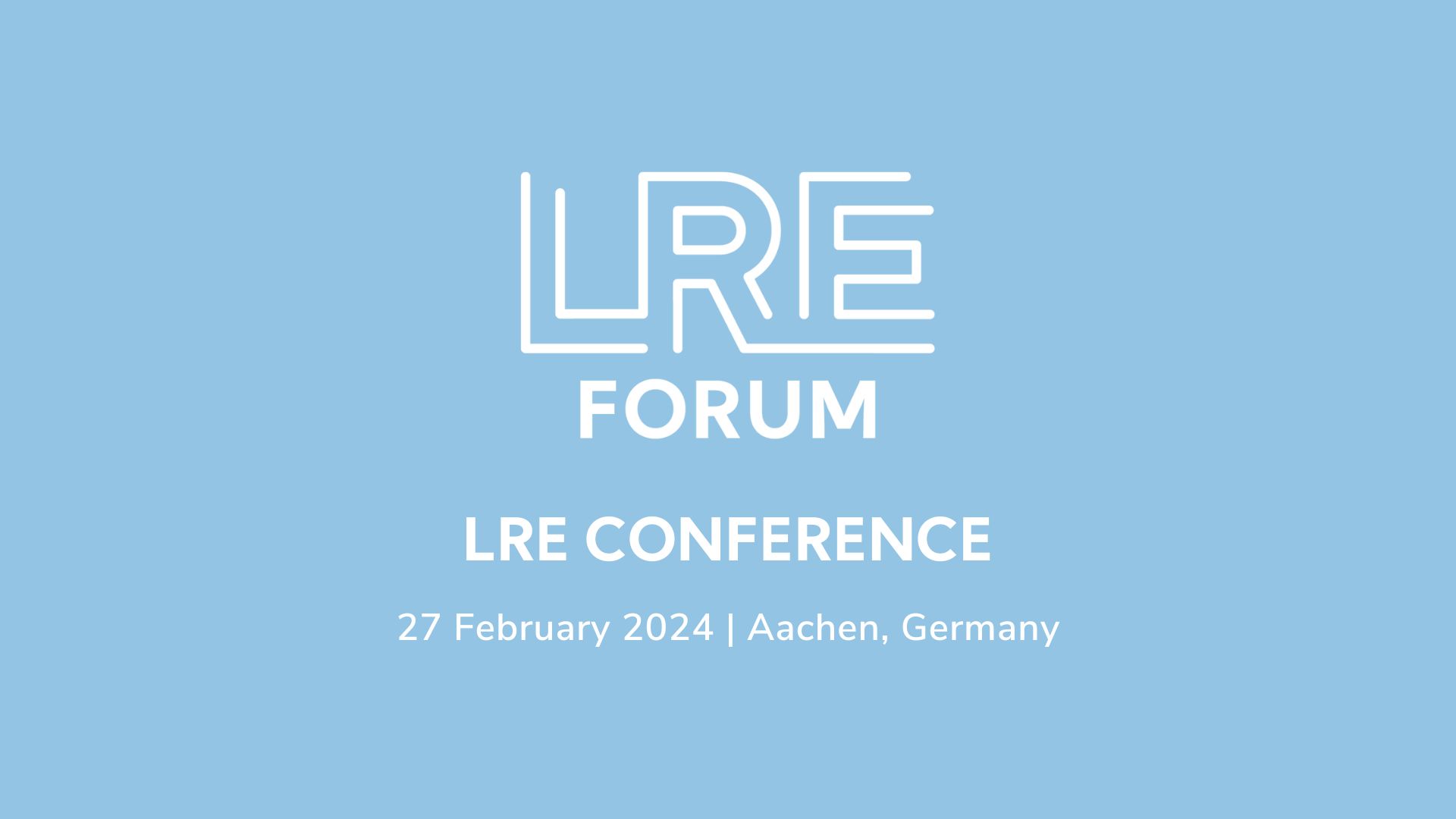This year’s LRE Conference – one of the key events of the LRE Forum 2024 – will be held in Aachen on February 27. This event aims to inform and inspire all the Foundation’s stakeholders and anyone interested in WWII history and will feature in-depth keynotes, panel discussions, and presentations by international speakers.
The LRE Conference 2024 will revolve around the topic of “The Complex Legacy of WWII Persecution: Reflections on Justice and Remembrance” and will be divided into several sessions, each addressing the topic from a different point of view.
The event will start with a keynote speech from Dietmar Nietan, Member of the German Parliament, titled: “From Persecution to Justice and Accountability,” which will discuss the challenges in achieving accountability and justice for the persecution and crimes committed during World War II. A panel discussion, moderated by British Historian and author Keith Lowe, titled “Making Amends and Ensuring Justice” will then look at the ways and issues connected to pursuing transitional justice, reparations, restitution, and memory laws in the aftermath of the war. The last session will feature an intimate conversation with Mala Tribich MBE, a Holocaust survivor, on the significance of memory preservation and transmission.
To take a glimpse into this year’s event, we interviewed Rémi Praud, LRE Foundation’s Managing Director, on what will await us at the LRE Conference 2024:
How did you come up with the topic for this year’s conference?
This year’s topic was chosen due first to its profound historical significance but also to its relevance in addressing contemporary global challenges. World War II persecution stands as an important chapter in history, leaving a mark on our world that continues to influence our societies in significant ways.
One of the primary reasons for selecting this topic is its multifaceted nature. It allows us to explore a range of themes, such as art restitution, memory laws, war crime trials, or compensation.
Delving into the complexities of art restitution, which is still an ongoing process, raises fundamental questions about historical justice, for instance.
War crime trials underscore, as well, this ongoing pursuit of justice for the victims of WWII persecution, but also connect with the present. The Nuremberg Trials did set a precedent for addressing mass atrocities through legal means. Today, as war crimes tribunals and international law continue to evolve, it is interesting to see how historical cases inform contemporary justice efforts. This allows us to critically assess the effectiveness of legal mechanisms and evaluate the significance of reparations.
Compensations address also this need for reparation and the responsibility of societies to redress historical wrongs, a moral imperative that emerged after the war.
Last but not least, the topic of memory laws acknowledges the critical role of collective remembrance in shaping societies. Such laws not only preserve the historical record but also serve as a foundation for building a just and inclusive future. All these topics share the same question of how societies deal with the darker chapters of their past.
What is the importance of discussing persecution with a special emphasis on law and justice?
This angle is very interesting because it connects with the present and helps us reflect on different topics. For example, it sheds light on legal accountability and how it is defined. The post-WWII processes have been instrumental in developing new legal concepts, which set a precedent for international justice.
Furthermore, it is crucial as it deals with the rights of victims and survivors, exploring how paths to justice and closure were offered, and what kind of healing process for survivors and their descendants we can envisage after such a traumatic event.
In addition, emphasizing law and justice is integral to fostering societal reconciliation, as it encourages open dialogue about historical injustices. It also plays a crucial role in preserving historical memory through legal proceedings like war crime trials. These trials provide an official record of past atrocities and ensure that the lessons learned from that period are not forgotten. These are just a few of the themes that will be addressed by our speakers.
This year’s conference has some interesting key speakers. How did you choose them and what can they bring to the discussion?
We have selected the speakers with a diversity of expertise, and backgrounds, coming from different countries, bringing complementary perspectives. We were, for example, particularly interested in the work of the EVZ Foundation, which is instrumental when it comes to the topic of compensation, but also in how to address Germany’s responsibility for the future. The presence of Dr Andrea Despot, its CEO, is a chance for the discussion. We were also very keen to invite speakers with very personal experiences related to the justice processes. For example, the historian Dr. Carlo Gentile has been testifying as an expert in various trials in Germany, Italy, and Canada. Anne Webber, Co-Chair of the Commission for Looted Art in Europe (CLAE), has a remarkable track record in advocating for restitution policies globally and achieving the return of over 3,500 cultural items. This is the type of diversity we always want to have in our conferences.
And last but not least, the presence of Mala Tribich, a Holocaust survivor of the Ravensbrück and Bergen-Belsen concentration camps, is an immense privilege. Hearing her story and reflections will be for sure an emotional and powerful conclusion for our conference.
What do you want the public to take home from the LRE Conference 2024?
Our idea with this theme is that our audience is confronted with different angles constituting the processes of justice and remembrance, and they can relate to what happened in their own country or own region. We hope that those perspectives and examples will be a reflection starting point, especially connecting with contemporary conflicts and a reason for discussions after the conference between participants. If our conference brings up such discussions, it means that we have succeeded.
The conference is open to everyone. Click here to register!


